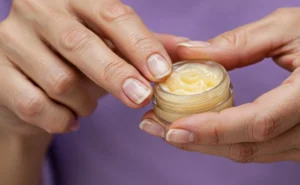Clicking or cracking sounds in the knees, known medically as crepitus, are more common than you might think and, in most cases, do not pose a health risk. However, when these sounds are accompanied by pain, stiffness, or swelling, they could be an indication of joint conditions such as osteoarthritis.
Crepitus refers to the cracking, popping, or grinding sound that can occur when moving the knee. Mitchell McDowell, MD, an orthopedic surgeon and president of M Bone and Joint, explained that these sounds are usually caused by harmless phenomena such as the rupture of gas bubbles in synovial fluid or the rubbing of soft tissue on bony structures.
However, when crunching occurs along with persistent pain, prolonged morning stiffness, swelling, or difficulty moving the joint, it may be a sign of a more serious condition, such as osteoarthritis. In these cases, specialists recommend prompt medical evaluation.
Key facts: How many people experience knee creaking
Recent studies have shown that joint noises in the knees are highly prevalent. A review published in Osteoarthritis and Cartilage found that up to 41% of the general population experiences crepitus.
This figure drops to 36% in people without discomfort or injuries, but increases to 81% in those with osteoarthritis, and reaches 93% in patients with a diagnosis confirmed by X-ray.
Likewise, according to a review cited in BMJ Journals, these sounds also occur in people with musculoskeletal conditions such as chondromalacia patella or ligament injuries.
Although their presence is not always related to pain or loss of function, they can be a sign of structural changes, such as osteophyte formation or cartilage damage.
Factors that influence the onset of crepitus
Aging is one of the main factors associated with crepitus, but not the only one. Barry L. Bentley, professor of bioengineering at Cardiff Metropolitan University, emphasizes that chronological age alone does not explain joint deterioration. Factors such as genetics, previous injuries, high-impact physical activity, and unhealthy habits also affect knee health.
Practices such as running on hard surfaces or lifting weights without proper technique can accelerate joint wear and tear. Additionally, an inflammatory diet, smoking, and excessive alcohol consumption can contribute to chronic inflammation, which negatively impacts the joints.
How to prevent joint wear and tear and protect your knees
To maintain healthy joints and prevent complications related to crepitus, specialists recommend adopting joint care habits:
- Maintain a healthy body weight
- Include anti-inflammatory foods in your diet
- Perform low-impact exercises such as walking, swimming, cycling, or practicing tai chi.
- Strengthen the muscles surrounding the knee
These measures can improve mobility, reduce stress on joints, and reduce the occurrence of annoying creaking sounds.
When to see a doctor about noises in your knee
Although joint creaking is usually normal, it’s essential to pay attention to its evolution. If the sounds occur along with persistent pain, swelling, or functional limitations, it’s necessary to consult a specialist. Early diagnosis of conditions such as osteoarthritis can make a significant difference in the patient’s treatment and quality of life.
Recent research has shown that, although crepitus is associated with structural changes observed on MRI, it is not always associated with pain or disability. Therefore, not all creaking sounds are cause for alarm, but they should not be ignored if accompanied by other symptoms.























+ There are no comments
Add yours